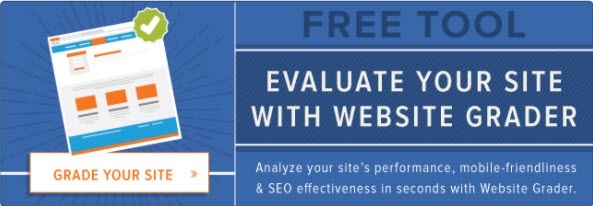SEO Basics: A Practical Guide for Marketing Leaders
- Home
- SEO Basics: A Practical Guide for Marketing Leaders
Mastering SEO Basics can feel like navigating a maze. Navigating the SEO maze can be a daunting task, but with perseverance and knowledge, it's possible to make your website shine on Google. You may have read countless articles and watched numerous tutorials but still find yourself lost in the labyrinth of search engine optimisation or even delegated these SEO services to an agency. The difference between an unnoticed webpage and a top-ranking site? Understanding and applying these SEO fundamentals.
Nailing down SEO is tough, folks.
I recently spoke with one digital marketer who told me that despite investing significant time into learning SEO techniques, his website traffic remained stagnant.
The fear of never breaking through the noise online has left him hesitant to continue investing in his understanding of SEO basics.
Pretty discouraging!
But here’s some truth…
Table of Contents:
- Importance of SEO in Today's Digital Landscape
- Understanding E-A-T and Its Impact on Ranking
- Search Engines' Library Metaphor
- Applying Maslow's Hierarchy of Needs to Your SEO Strategy
- Tailoring Your Backlink Profile
- FAQs in Relation to SEO Basics
- Conclusion
Importance of SEO in Today's Digital Landscape

In the sprawling digital landscape, Search Engine Optimization (SEO) serves as a lighthouse, guiding users to relevant content. It is Google's way of ensuring user satisfaction by delivering top-tier results for their queries.
The Role of Links in Connecting Web Pages
A key aspect within this vast web are links - they're akin to bridges connecting different islands on the internet sea. The power and significance these connections hold cannot be underestimated.
Google views links between websites as votes towards credibility and relevance. A webpage with numerous high-quality inbound links tends to rank higher than one without such endorsements.
How Google Prioritizes User Experience
User experience plays an instrumental role when it comes down to search engine rankings. As stated by Think With Google, sites providing seamless navigation alongside valuable information tend to garner more attention from both users and search engines alike.
This emphasis on UX translates into various ranking factors like mobile-friendliness, site speed, and safe browsing - all aimed at enhancing overall user engagement.
In fact, "Core Web Vitals", introduced recently by Google itself, is another testament emphasizing how much weightage lies upon creating positive experiences for end-users while surfing online platforms.
As we delve deeper into understanding SEO fundamentals, remember that every strategy should revolve around improving your audience's interaction with your website or blog.
This brings us to our next topic: E-A-T scores impact on page ranking.
Understanding E-A-T and Its Impact on Ranking
In the realm of SEO, E-A-T is a significant factor that influences your website's ranking. Standing for Expertise, Authority, and Trustworthiness, it acts as Google's quality control mechanism.
What Constitutes Low E.A.T?
A low E-A-T score can be detrimental to your site's visibility. This usually happens when there are credibility issues with the content or its source.
If you lack expertise in a particular field but publish articles about it without proper research or expert review, this could lead to low Expertise scores.
Lack of high-quality backlinks from reputable sources may result in lower Authority scores, while inconsistency in providing accurate information can negatively impact Trustworthiness ratings.
Ways To Improve Your Website's E.A.T

Improving these three factors significantly requires strategic planning and consistent effort over time. However, here are some steps you might consider:
- Create well-researched content: Ensure all published material reflects an understanding of the topic by using reliable sources during the research stages.
- Demonstrate author credentials: Showcase authors' qualifications related to their subject matter within bios attached to each article they write.
- Earn high-authority backlinks: Focus on building relationships with other industry leaders who will link to your site due to its valuable content.
- Maintain accuracy across posts: Regularly update older posts if new data becomes available, ensuring consistency between past publications and the current knowledge base.
Search Engines' Library Metaphor

To truly grasp SEO basics, one must understand how search engines work. Much like a library, search engines house vast amounts of information and serve as an essential resource for people searching the web.
Comparing Search Engine Ranking to Library Book Featuring
In libraries, books from authoritative sources often take center stage. Similarly, in the digital world, search engine results pages (SERPs) prioritize credible and valuable content for users.
The process begins with crawling - where search engines discover new or updated website content through links. This is akin to librarians sourcing new books for their collections.
Next comes indexing - just as libraries categorize books based on the subject matter or author name; similarly, Google indexes your site's content into its database, ready for retrieval when needed by a searcher's query.
Ensuring Source Credibility For Better Rankings
Like you'd want trusted authors featured prominently in your local library, ensuring credibility online can significantly improve your keyword rankings within organic search results. Content creation plays a crucial role here - creating high-quality material that provides value makes you an important page among other sites vying for attention.
Avoid duplicated content at all costs. Just as no two published works are identical without legal consequences: duplicate copies will only confuse Google and could harm ranking factor performance.
Title tags, meta descriptions, [ a critical part of technical SEO ] and URL structure also play significant roles in helping these virtual 'librarians', i.e., crawlers decipher what each webpage offers. A well-thought-out strategy around these elements helps ensure visibility during relevant searches.
Your internal linking strategy should be robust too. Think about it this way -just like book references guide readers towards additional resources, internal links lead visitors deeper into related topics within your website, helping them find more useful information while boosting user experience. This keeps visitors engaged longer and signals relevancy to crawl bots, leading ultimately towards better rank and higher opportunities.
In our next section, we'll delve deeper into applying psychological principles such as Maslow's Hierarchy of Needs directly to our SEO efforts. It promises some interesting insights, so stay tuned.
To truly understand SEO basics, it's important to grasp how search engines work. They function like libraries, housing vast amounts of information and serving as a valuable resource for web users. Just as authoritative books take center stage in libraries, search engine results prioritize credible and valuable content.
Search engines discover new or updated website content through crawling, similar to librarians sourcing new books. Indexing categorizes the content into a database for retrieval when needed by a searcher's query.
Ensuring source credibility is crucial for better rankings. Creating high-quality material that provides value improves keyword rankings within organic search results. Avoid duplicated content at all costs to avoid confusion and harm ranking performance.
Title tags, meta descriptions, and URL structure also play significant roles in helping crawlers decipher webpage offerings. A well-thought-out strategy around these elements ensures visibility during relevant searches.
An internal linking strategy should be robust - just like book references guide readers towards additional resources, internal links lead visitors deeper into related topics on your website while boosting user experience and signaling relevancy to crawl bots.
In the next section, we'll explore applying psychological principles such as Maslow's Hierarchy of Needs directly to your SEO efforts for interesting insights.
Applying Maslow's Hierarchy of Needs to Your SEO Strategy
The application of Maslow's hierarchy of needs, a well-known motivational theory, can provide valuable insights for your SEO strategy.
The Five Tiers According to Maslow's Hierarchy

Maslow proposed five tiers in his hierarchy:
- Physiological needs: These are the basic necessities like food and water. In terms of an SEO strategy, this could translate into ensuring that your site is functioning properly with no broken links or duplicated content.
- Safety needs: This refers to security and stability. For search engine optimization purposes, technical SEO measures such as secure sockets layer (SSL) encryption contribute towards fulfilling this need by protecting user data.
- Social belongingness: Humans have an inherent desire for social interaction and acceptance. An engaging user experience on your website or blog can satisfy these desires leading to higher organic traffic rates.
- Ego-esteem needs: This tier involves recognition and respect from others, which may be reflected through high keyword rankings in search results pages (SERPs).
- Self-actualization: In the context of SEO efforts, self-actualization might mean reaching the top spot on Google Search Console ranking factor due to its relevance with the searcher's query.
Picking Essential Elements for an Effective Strategy
To incorporate elements derived from these tiers into your approach, it is essential first to understand how people searching online interact with websites. It's crucial to create content that satisfies their queries while simultaneously appealing to major search engines, thus improving visibility SERP. Here are some tips:
- Keyword Research: Use tools to identify target keywords relevant audience frequently uses when conducting searches. By including these throughout your site's meta descriptions and title tags, you'll increase your chances of appearing at the top page based on relevancy.
- Content Creation: Create quality information and provide value to readers, considering what they are looking for according to EAT principles of expertise, authority and trustworthiness.
- Link Building: Strive to build links to authoritative sites within your industry. Become a credible resource to users, thereby boosting overall rank and higher position on result listings.
These strategies help enhance the internal linking structure and improve URL structure, making it easier for both users to navigate around key sections. Domain enhancing accessibility bots crawl index all-important pages efficiently, resulting in better local SEO performance, ultimately leading to a greater share organic market.
Remember always to keep the end goal in sight - satisfying the intent of each individual who visits the platform, providing them exactly what they're after in a timely and efficient manner, so they come back again, bringing along potential new visitors.
Uncover the SEO basics to optimize your site, boost rankings, and drive organic traffic. Enhance your digital strategy for business growth today by applying Maslow's Hierarchy of Needs to your SEO strategy. Understand how people search online and create content that satisfies their queries while appealing to major search engines. Use keyword research, create quality content, and build authoritative links to improve visibility in SERPs.
Tailoring Your Backlink Profile
As a marketer, you understand the importance of having a robust backlink profile. It's like your company's digital footprint on the internet. But how can it be optimized to cater specifically towards your buyer persona - an ambitious Marketing Manager looking to expand brand reach through strategic marketing initiatives?
Determining What Makes Up A Good Backlink Profile
The foundation for any successful SEO strategy is understanding what constitutes a good backlink profile.
A healthy link portfolio typically includes links from diverse sources with high domain authority relevant to your industry or niche.
For instance, if you're in tech and have backlinks from authoritative sites such as TechCrunch or Wired, Google will likely perceive these positively because they're highly respected within this field. Domain Rating (DR), developed by Ahrefs, offers insights into website quality based on their index of live websites, which could aid in assessing potential linking domains' worthiness.
Ways You Could Enhance Link-Backs Tailored Towards YOur Buyer Persona

To tailor your backlinks effectively toward your buyer persona - savvy marketers aiming for growth, there are several strategies you might consider:
- Create valuable content: The more useful and unique your content is, the higher chances that other websites will want to link to it. Whether it's comprehensive guides or thought-provoking articles about emerging trends in marketing technology - make sure whatever is produced resonates with fellow marketers who may share amongst their networks, thereby generating organic inbound links.
- Pitch guest posts: Guest posting allows control over anchor text used when obtaining new incoming connections while simultaneously reaching wider audiences via established platforms related directly (or indirectly) within targeted industries, thus increasing visibility exponentially.
- Leverage partnerships: If working collaboratively alongside partners, whether vendors or clients etc., leverage relationships by requesting them to include site references wherever possible, fostering mutually beneficial exposure whilst strengthening overall online presence.
- Incorporate influencer outreach: Identify key influencers whose followers match desired demographics, then engage professionally, offering compelling reasons why sharing material would benefit both parties, ultimately encouraging authentic advocacy. This results in increased referral traffic, potentially leading to better search engine rankings.
With careful planning and dedication, implementing the aforementioned tactics should yield noticeable improvements not only in quantity but importantly, in quality associated with external referrals, contributing significantly to improved SERP positioning and long-term business success alike.
Optimizing your backlink profile is crucial for marketing success. To cater to our ambitious Marketing Manager persona, focus on high-quality links from diverse sources with relevance and authority in the industry. Enhance link-backs by creating valuable content, pitching guest posts, leveraging partnerships, and incorporating influencer outreach. These strategies will improve the quantity and quality of external referrals, leading to better search engine rankings and long-term business success.
FAQs in Relation to Seo Basics
What are THE basics of SEO?
The basics of SEO include keyword research, on-page optimization, content creation, link building and analyzing performance through tools like Google Analytics.
How do you explain SEO to dummies?
SEO is a digital marketing strategy that helps your website appear higher in search engine results. It involves optimizing your site's content and design to attract more visitors.
What are THE 3 main areas of SEO?
The three main areas of SEO are On-Page (content), Off-Page (link building) and Technical (site structure & speed).
What are the 4 main components of an SEO?
The four key components of an effective SEO strategy include keyword-focused content creation, website optimization for speed and user experience, backlink acquisition from authoritative sites, and regular analysis & refinement based on data.
Conclusion
SEO Basics are the foundation of any successful digital strategy. The importance of SEO in today's digital landscape is undeniable, acting as a guiding beacon for users to find relevant content.
E-A-T factors - Expertise, Authority, and Trustworthiness - significantly impact your page ranking on Google. Improving these can enhance visibility for high-value keywords.
Akin to libraries featuring credible books prominently, search engines rank content based on its credibility too. This understanding can be crucial in crafting an effective SEO strategy.
Maslow's Hierarchy of Needs offers valuable insights into human needs that you can leverage while creating your approach towards SEO. Picking essential elements from this theory could make all the difference!
Your backlink profile plays a significant role in boosting site authority and enhancing relevance within specific audience segments. A well-curated one can do wonders!
Ready to elevate your brand reach through strategic marketing initiatives? Consider diving deeper into Whitehat, our inbound marketing project focused on driving organic traffic by optimizing website performance with proven SEO techniques. Start growing your business today!


